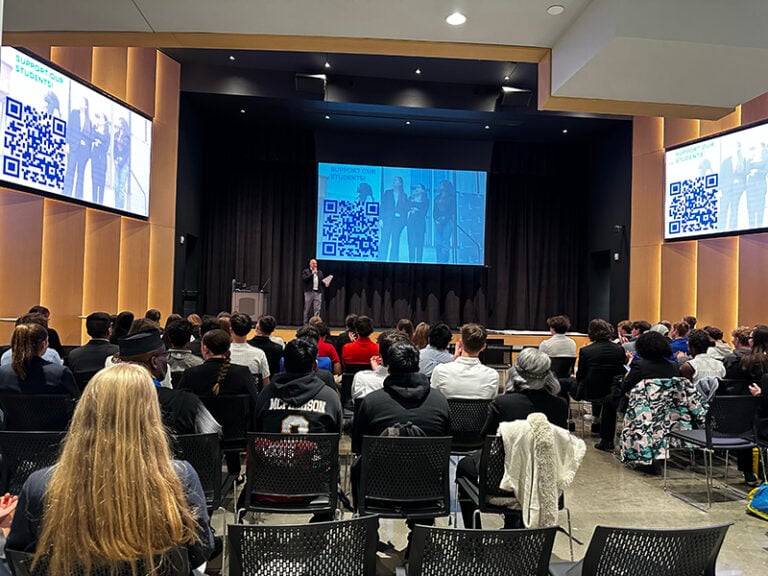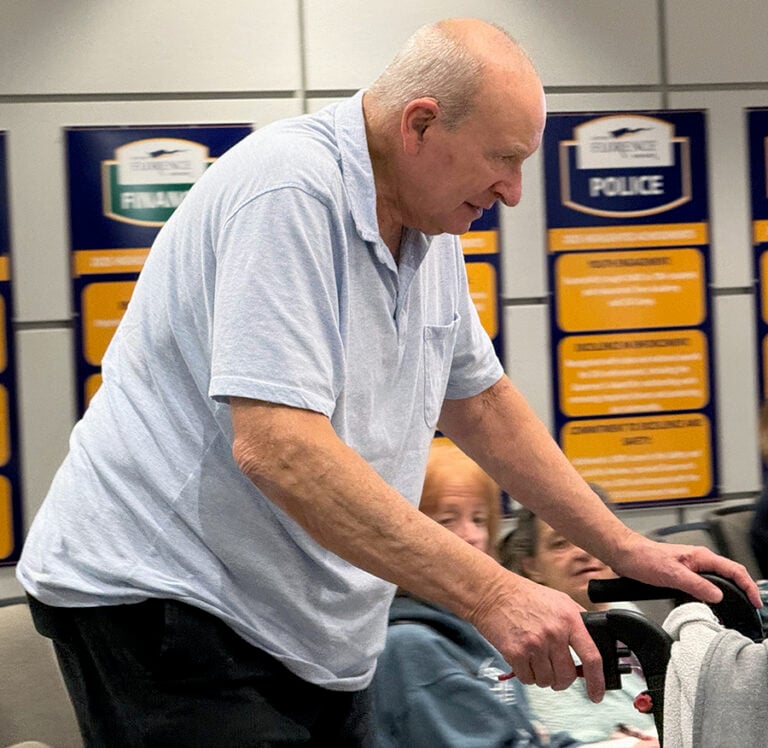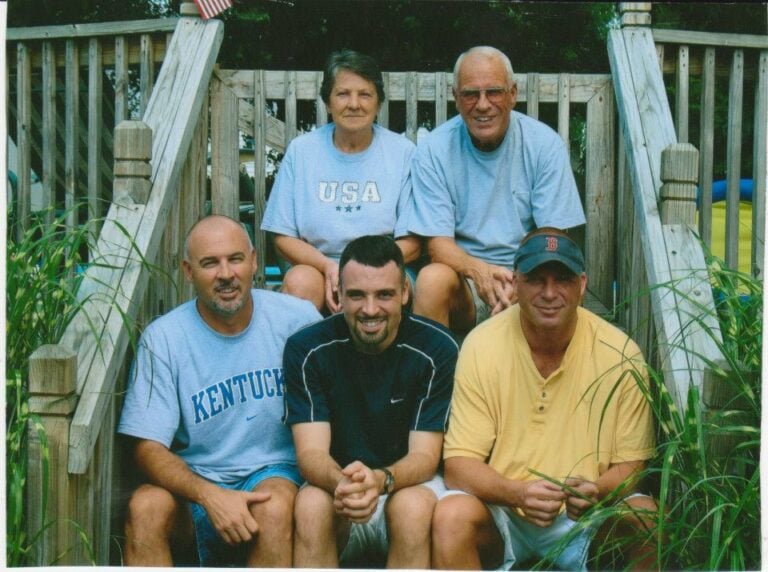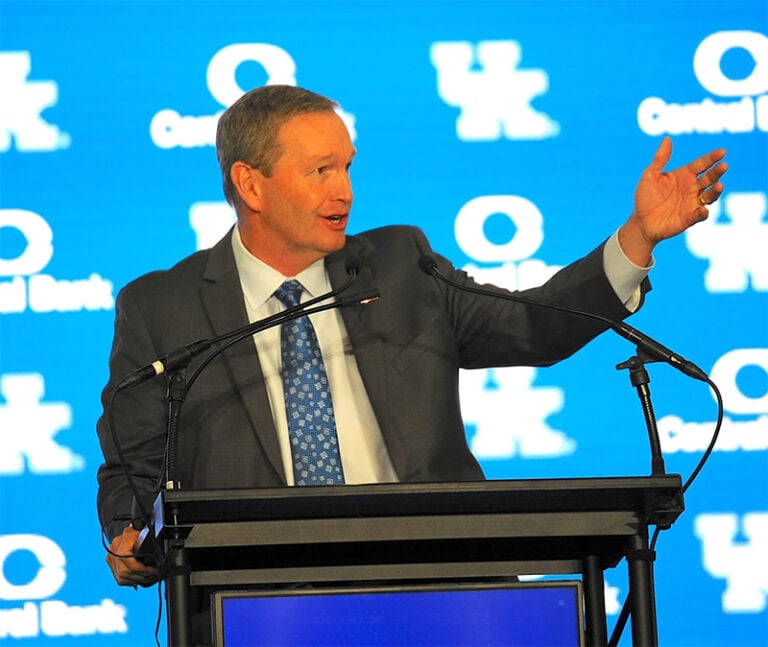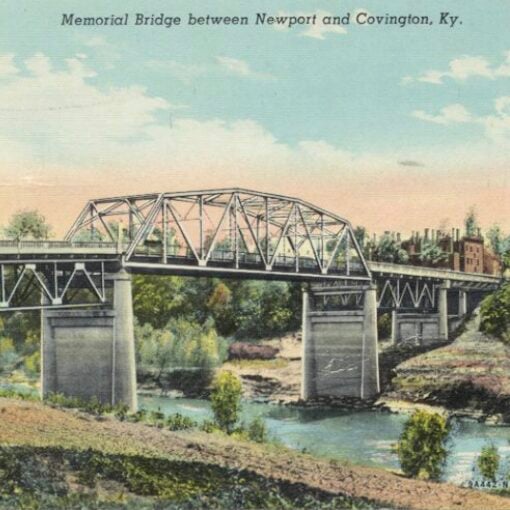Kentucky may be a couple thousand miles away from Hollywood, but that hasn’t diminished our connections to the entertainment industry. Some of today’s most famous actors – George Clooney, Jennifer Lawrence and Johnny Depp included – were born here.
The commonwealth itself has been the backdrop of several well-known movies, from Elizabeth Taylor’s Raintree County in the 1950s to Dustin Hoffman’s and Tom Cruise’s Rain Man in the 1980s (Tom Cruise spent part of his youth in Louisville, by the way). Fort Knox was a focal point for James Bond’s Goldfinger in 1964 and Bill Murray’s Stripes in 1981, and our horse industry has played a starring role in not one but three major movie productions over the last dozen years: Seabiscuit, Dreamer and Secretariat.

Over the last few decades, our Northern Kentucky region has been featured as well, with Augusta serving as a site for James Michener’s Centennial, PBS’ Huckleberry Finn; and Neil Simon’s Lost in Yonkers.
Our ties to television and movies go even deeper than these examples. Consider Jessamine County’s Asbury University, which has raised its industry profile considerably since the early 1980s while graduating hundreds of students who now play starring roles behind the camera.
Their credits include handling special effects for the highest-grossing movie of all time, Avatar; and several have served as writers and producers of such television shows as NCIS, Everybody Loves Raymond and Mythbusters. Overall, Asbury graduates have worked on films earning 16 Academy Awards.
If California still remains the face of television and movie production, that hasn’t stopped other states from taking a larger slice of that multibillion dollar pie. It’s easy to understand why; these shows and films can provide thousands of jobs, and the final product can boost tourism in ways commercials and other advertisements can’t.
Two southern states have been especially successful in this regard. In 2013, Louisiana had about as many film projects as California, while Georgia reported last August that the film and television industry there had a $5.5 billion economic impact during the 2014 fiscal year. That state now supports more than 75,000 jobs in this field, while shooting locations for such shows as The Walking Dead have become tourism destinations.
Six years ago, the General Assembly sought to have Kentucky play a bigger role when it authorized tax incentives targeted toward movie, television and documentary production and traveling Broadway-styled shows.
Since then, however, these incentives have fallen behind what these productions can receive elsewhere. First Lady Jane Beshear, who made changing this trend a top priority in the just-completed legislative session, told legislators that 30 states now have better tax-incentive packages.
The commissioner for the Kentucky Department of Travel and Tourism said the just-completed FX series Justified underscored the problem. Although set in Harlan County, the show was primarily filmed in Pennsylvania and California, with only a small crew coming to Kentucky periodically for exterior shots.
This year’s new law, which passed the House and Senate overwhelmingly, brings our entertainment incentives up to levels seen in many other states. It lowers the eligibility for film projects to qualify, and it sets an even lower bar if the company applying for the incentives is based in Kentucky. The incentives are also higher if the production takes place in rural counties that have not fully rebounded economically.
Budget officials estimate the incentives will cost the state about $5.5 million a year, though that figure could grow if we are successful. The return on investment has been cited as a positive one economically by other states.
Given Kentucky’s current connections to the industry, the film programs at our universities, our workforce and the state’s incomparable geography, there is no reason why we cannot see the commonwealth take on a bigger leading role in television and the movies. If that does happen, this new law will be a key reason why.
Rep. Mike Denham, a Democrat from Maysville, has represented House District 70 (Bracken, Fleming and Mason counties) since 2001.








